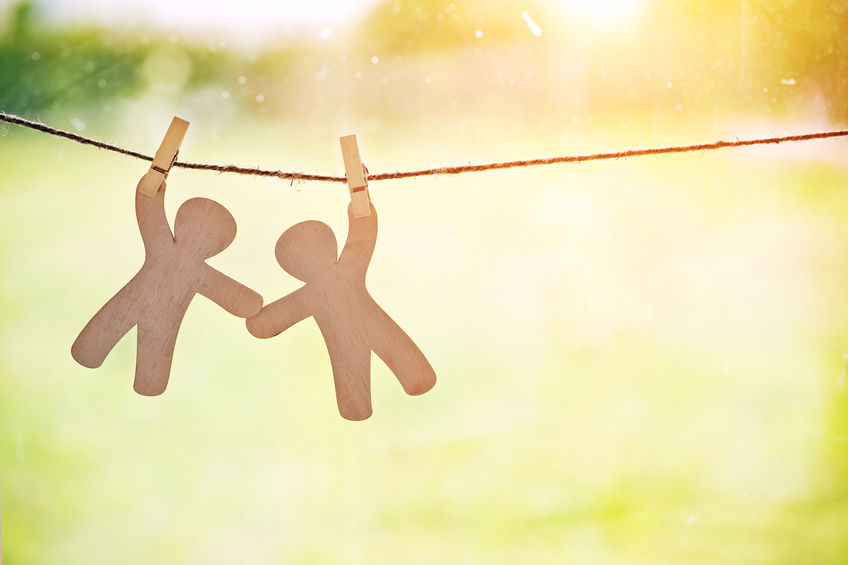
She Helps People Hang On
By Kerry J. Bickford, VOICES Editor
Lisa Trusas was working dispatch at the Milford PD one night when a call came in from the local hospital for help. A young man who had been taken there by ambulance following an overdose had fled with the IV still in his arm and disappeared into the night. Lisa looked up his name and date of birth and couldn’t find his information, but she then checked Facebook and found a match. She sent him a private message introducing herself as a recovery coach and gave him her contact information. Three weeks later, she got a message back that said simply, “I’m ready.”
Whether in recovery or grieving an overdose loss, the most critical message is that you are not alone. Unlike many other diseases, substance use disorder is one of isolation and that is as lethal as the substance. Supporting people as they struggle, recover, relapse, even overdose is essential to survival. Somehow, Lisa was able to get this message through to “Joe” in time for him to seek help before another overdose. The next time, he might not have been so lucky.
Lisa was no stranger to the disease of addiction when she decided to pursue training as a recovery coach in 2017. She had witnessed it in her own family and in her work as a dispatcher since 2002, so she signed up to attend a 40-hour recovery coach academy. She then set out to provide coaching services with the Regional Substance Navigation Program through Community Impact in Milford.
Since then, Lisa has helped people get into detox, find meetings and cope with daily life following an overdose or detox stay. She said her clients often feel like her kids, and she does what she can to support them, especially when they relapse. She has watched the opioid crisis increase over the last few years, including the number of people who need her services to maintain their recovery. The limitations of available facilities and insurance, MassHealth in particular, are a big part of the problem. People need long-term placements to increase success in their efforts to avoid relapse, but this is rarely possible. Most simply cannot afford to pay the price of long-term recovery if there is no insurance coverage, and many people come from the streets with nothing. The availability of more scholarships for sober living would make a huge difference in the recovery world and could, quite possibly, reduce the number of substance-related deaths.
Following an overdose or death, the police department sends information to Lisa and her team and contact is made within 24 hours by phone or a visit. This sensitive and timely outreach includes asking family members how they can help and whether they would like to talk to someone. If a death has occurred, the focus changes from supporting the person in recovery to supporting the grieving family. Often loved ones have experienced a great deal of trauma during their person’s disease, and death adds a final and sometimes complicated layer. Connecting them to people who understand what they have been and are going through usually makes a significant difference in their grief journey. Without it, families and good friends suffer silently. Peer support offers hope that the perception is changing and gives them strength to get up on the days they would rather not. It is a path forward.
It is not just the family and other loved ones who need support following a traumatic death involving substance use. These losses are difficult for the members of the response team, primarily if the victim is known to them or is someone they have been working with. Lisa’s group is a tight-knit one, and they have created a small community to lean on during such moments. They attend the funeral together and support one another as well as the family of the deceased. They do what they can to stay healthy and take care of their own emotional and physical needs in these stressful moments. Self-care for Lisa includes backyard gardening, walks on the beach and spending time with her 6- and 9-year-old children. Home with her kids and in her garden “is my happy place,” Lisa says.
Recovery coaches and other harm-reduction workers have seen enough of the shame and isolation of SUD that they are compelled to go “the extra mile” in their work just as Lisa did that night when she reached out to someone who panicked after finding himself in the hospital following an overdose.
She reports, by the way, that he is still in recovery and working hard, thanks to a dedicated community prevention, intervention, and recovery program that continues to invest in its partnerships and resources in response to this devastating epidemic. It is always reassuring to hear that not every overdose ends in loss and that we are all making a difference one life at a time.
